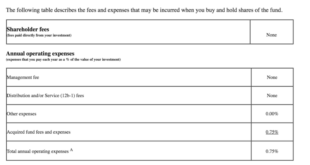Mortgage Broker Guide: Things to Secure the Best Deals. A mortgage broker can be your greatest ally when navigating the complex process of securing a home loan. In this comprehensive guide, we’ll explore what mortgage brokers do, how they differ from direct lenders, and how you can leverage their expertise to secure the best mortgage for your needs.
What Is a Mortgage Broker?
A mortgage broker acts as a middleman between borrowers and lenders. They help match clients with suitable mortgage options by analyzing financial situations, comparing offers, and negotiating terms. Unlike loan officers tied to specific banks, brokers work with multiple lenders, offering greater flexibility and choice.
How Mortgage Brokers Differ From Direct Lenders
- Access to Multiple Lenders: Brokers offer a wider range of options compared to single lenders.
- Expertise and Negotiation Skills: Brokers can secure better rates and terms due to their knowledge and relationships in the market.
- Convenience: Brokers streamline the application process, saving you time and effort.
Benefits of Using a Mortgage Broker
- Personalized Advice: Brokers assess your financial health to find the best-fit mortgage.
- Competitive Rates: With access to various lenders, brokers can compare rates and terms for you.
- Simplified Application Process: Brokers handle the paperwork and coordination with lenders.
- Support for Special Cases: If you have a low credit score or are self-employed, a broker can find suitable options.
How to Choose the Right Mortgage Broker
- Check Credentials and Licensing: Verify they are registered and certified.
- Ask for References: Look for reviews or testimonials from past clients.
- Compare Fees: Understand their commission structure and additional charges.
- Evaluate Communication Skills: Choose someone who explains clearly and answers your questions.
Common Mistakes to Avoid When Working with a Mortgage Broker
- Not Doing Your Own Research: Relying solely on the broker may lead to missed opportunities.
- Overlooking Fees: Ensure you understand how brokers are compensated.
- Choosing Based Solely on Rates: Consider all aspects, including loan terms and flexibility.
The Mortgage Process: Step-by-Step Guide
- Assess Your Financial Situation: Check your credit score, income, and debt-to-income ratio.
- Set a Budget: Determine how much you can afford for a down payment and monthly payments.
- Consult a Mortgage Broker: Share your financial details and goals.
- Compare Offers: Review options presented by your broker.
- Apply for Pre-Approval: Strengthen your position as a buyer.
- Select the Best Loan: Choose a mortgage that fits your needs.
- Complete the Paperwork: Work with your broker to finalize the application.
- Close the Deal: Sign the agreement and receive your loan.
10 Tips for Choosing and Working With a Mortgage Broker
- Verify their licensing and certifications.
- Request references from past clients.
- Ask about their lender network.
- Clarify their fee structure.
- Compare brokers before committing.
- Be transparent about your financial situation.
- Discuss potential loan scenarios.
- Stay involved in the decision-making process.
- Keep a record of all communications.
- Review the final terms thoroughly before signing.
10 Frequently Asked Questions About Mortgage Brokers
- What does a mortgage broker do?
They connect borrowers with suitable lenders and manage the loan process. - How do brokers get paid?
Most are paid through lender commissions or fees charged to borrowers. - Are brokers better than going directly to a bank?
It depends on your needs; brokers offer more options, but direct lenders might be quicker. - Can a broker help with bad credit?
Yes, many specialize in finding loans for clients with poor credit. - Do brokers offer better rates?
They can negotiate competitive rates, but it varies by lender. - Is it necessary to pay upfront?
Most brokers do not require upfront payments. - What’s the difference between a broker and a loan officer?
Brokers work with multiple lenders; loan officers represent one institution. - How long does the process take?
It depends on the loan type and lender, but brokers can streamline the process. - Are brokers regulated?
Yes, they are licensed and must comply with industry regulations. - Can I change brokers during the process?
Yes, but it may delay the loan application process.
Conclusion
Working with a mortgage broker can save you time, money, and stress. By providing access to multiple lenders and handling the complexities of the loan process, brokers are an invaluable resource for many homebuyers. However, selecting the right broker is crucial; take the time to research, ask questions, and understand their role in securing your mortgage.
Choosing the right mortgage broker and loan is a major financial decision. With the insights provided in this guide, you’re well-equipped to navigate the process confidently. Remember, a broker is there to simplify your journey, but staying informed and proactive will ensure you achieve the best results.
 mortgage.kbk.news
mortgage.kbk.news
